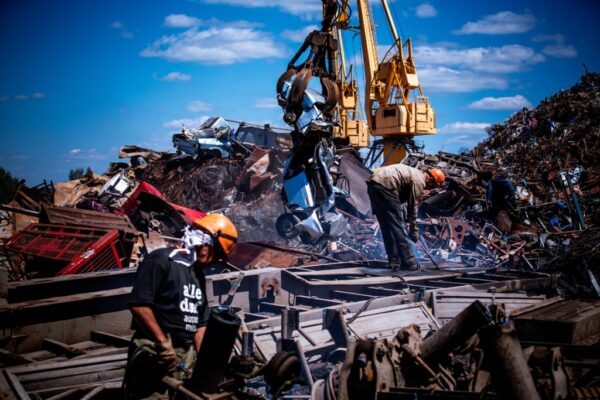Zimbabwe is losing millions of dollars through the unauthorized export of scrap metal as the Reserve Bank of Zimbabwe has not received any tax revenue from scrap export, an official has unearthed.
Rudairo Mapuranga
Speaking during a closed-door meeting hosted by the Zimbabwe Institute of Foundries (ZIF) in Harare last week officials from the RBZ said since the ban of scrap metal exports around 2010 the government has not recorded a single export of the product. Begging the question, where has all the revenue from the exports been going?
” We haven’t given any CD1 forms for the export of scrap metals, as far as our records are concerned, the country is not exporting scrap metal ” the official said.
Reserve Bank Exchange Control requires that all exports from Zimbabwe be declared on Form CD1 through the Banks who raised such documentation in a system called CEPECS. All exporters are thus required to make a once-off registration with one of the banks by providing information required on the Registration Form for Exporters.
So the absence of these forms reeks of a grand scheme of corruption and shortchanging of the country and the metal industry at large.
A foundry player during the meeting indicated that unscrupulous officials from Environmental Management Agency (EMA) and the Criminal Investigation Department (CID) Flora and Fauna have been fraudulently issuing scrap metal export licences when in actual fact the licences should be issued by the Ministry of Mines and Mining Development through the Minerals Marketing Corporation of Zimbabwe (MMCZ).
It was also brought to light that the CID just affirms or stipulates the source of scrap but they were not aware that their acknowledgements were being used as permits to export scrap out of Zimbabwe.
Efforts to reach the ZRP were fruitless by the time of publishing.
Foundry players are therefore calling for the Auditor General’s office to unearth the mystery behind scrap metal exports as to protect the foundry industry from the illegal export of scrap.
This has come at a time when the metal foundry sector and the exporters are scavenging for scrap.
The manufacture of steel depends on the availability of raw materials which primarily constitute scrap metals.
The foundry industry requires over one million tonnes of scrap metal just to produce thousand or fewer cast products with the metal cast industry’s current production sitting at 40 per cent.
Calls for Zimbabwe to ban scrap metal exports have grown amid revelations about 30 foundry and steel recycling firms have closed shop in the last two years due to an acute shortage of feedstock and high scrap metal prices.
The enterprises, mostly domiciled in Harare, Bulawayo and Midlands provinces, are helping to narrow the production gap left following the collapse of the local steel industry more than a decade ago. However, a sustained export of the scrap metals even by big firms has weighed down the operations of the foundry sector heavily.
.png)




